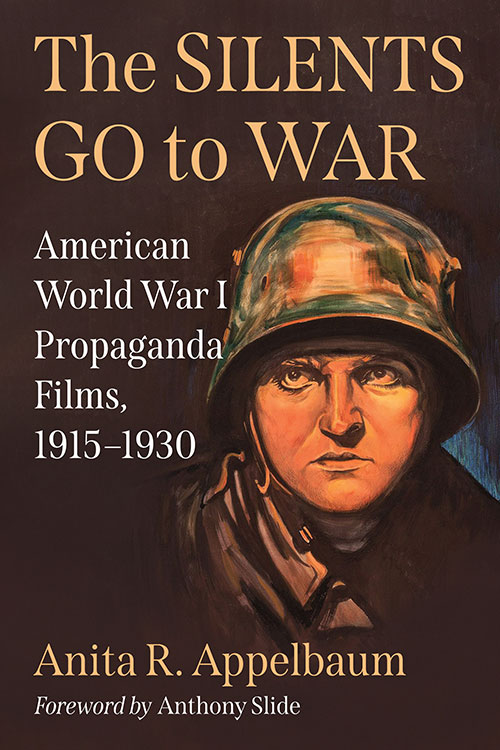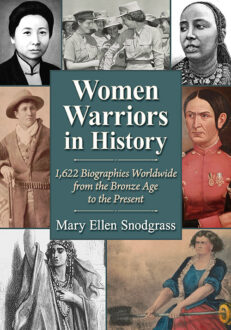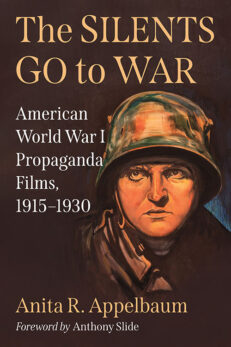The Silents Go to War
American World War I Propaganda Films, 1915–1930
$45.00
In stock
About the Book
In this book, readers can experience the tumultuous era of silent First World War propaganda films that helped shape U.S. opinion of the dreaded “Huns.” From pro-preparedness films pacifist films, “horrible Hun” films, “kill-the-kaiser” films, and outrageous comedies to thought-provoking war trauma films and patriotic documentaries, readers can survey America’s cinematic view of “the war to end all wars.”
Featured is comprehensive discussion of these films, including synopses, casts, back stories, and critical reviews and notes. Here are unusual tales and extraordinary plots with serpentine Germans (Erich von Stroheim throwing a baby out of a window in 1918’s The Heart of Humanity), noble French girls sacrificing their honor for the allied cause (Clara Kimball Young in 1918’s The Road Through the Dark), and singular Yanks (Bothwell Browne as a cross-dressing American flyer seducing the kaiser and his high command in 1919’s Yankee Doodle in Berlin).
About the Author(s)
Bibliographic Details
Anita R. Appelbaum
Format: softcover (6 x 9)
Pages: 211
Bibliographic Info: 17 photos, notes, bibliography, index
Copyright Date: 2024
pISBN: 978-1-4766-9034-6
eISBN: 978-1-4766-5272-6
Imprint: McFarland
Table of Contents
Acknowledgments viii
Foreword by Anthony Slide 1
Preface 5
Introduction: Influential Propaganda Movies During the First World War 7
1. Watchful Waiting: Antiwar and Pro-War Filmsof 1915 and 1916 19
2. The War Begins: The Committee on Public Information and Films of 1917 35
3. “Horrible Hun” Films of 1918 55
4. “Kaiserphobia” Films of 1918: Dramas and Comedies 72
5. Documentaries of 1918 95
6. Postwar Films of 1919 105
7. Antiwar and War Trauma Films of 1921–1930 118
Epilogue: Lost and Found 149
Chapter Notes 161
Bibliography 185
Index 195
Book Reviews & Awards
“An interesting and enlightening study…this book does a fine job of presenting cultural history through the movie camera lens. Everything from towering classics to lesser known subjects are discussed, and, thankfully, the author does not overlook comedies (as many studies maddeningly do)…most highly recommended…one of the finest books to explore this interesting subject.”—James L. Neibaur





